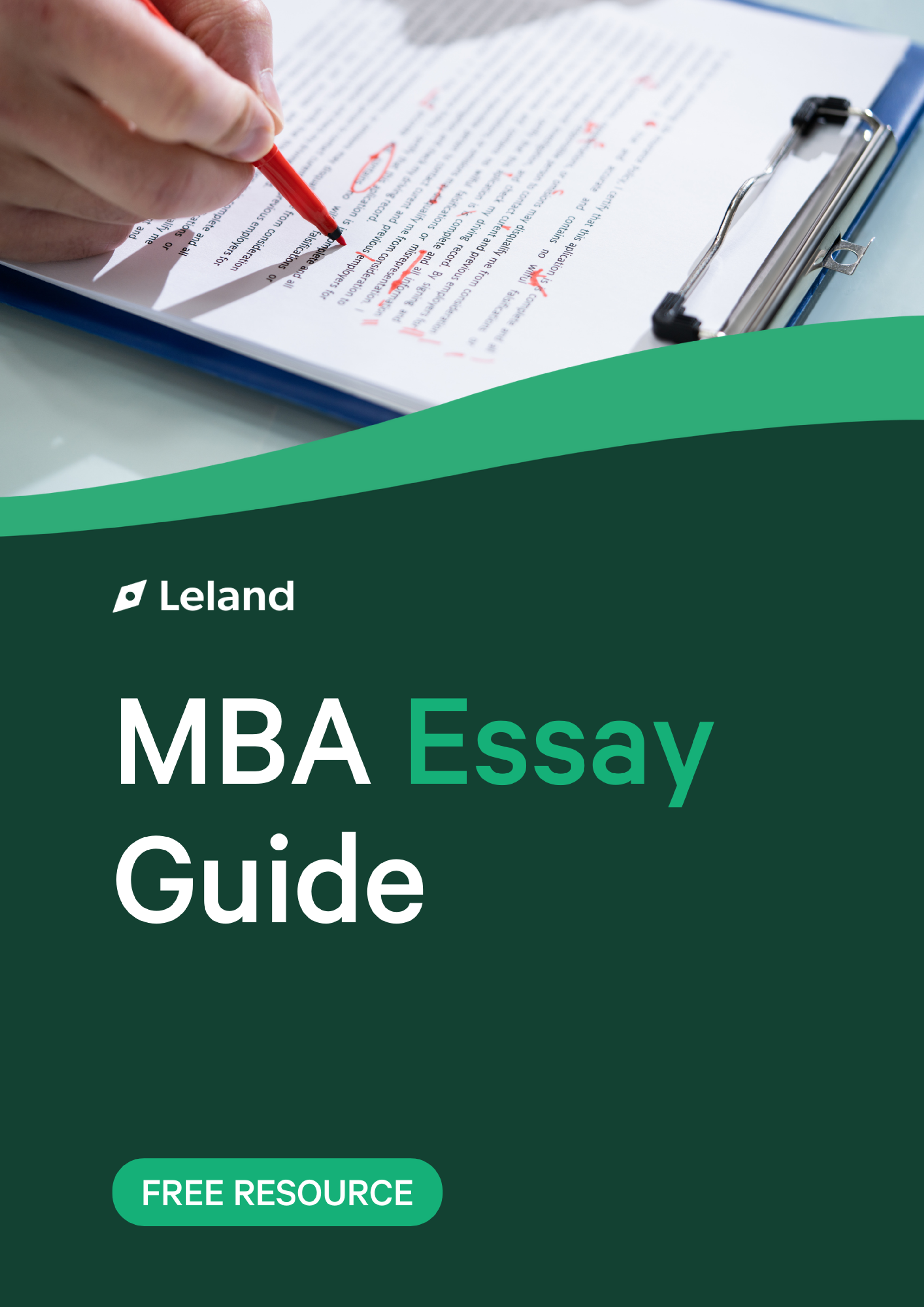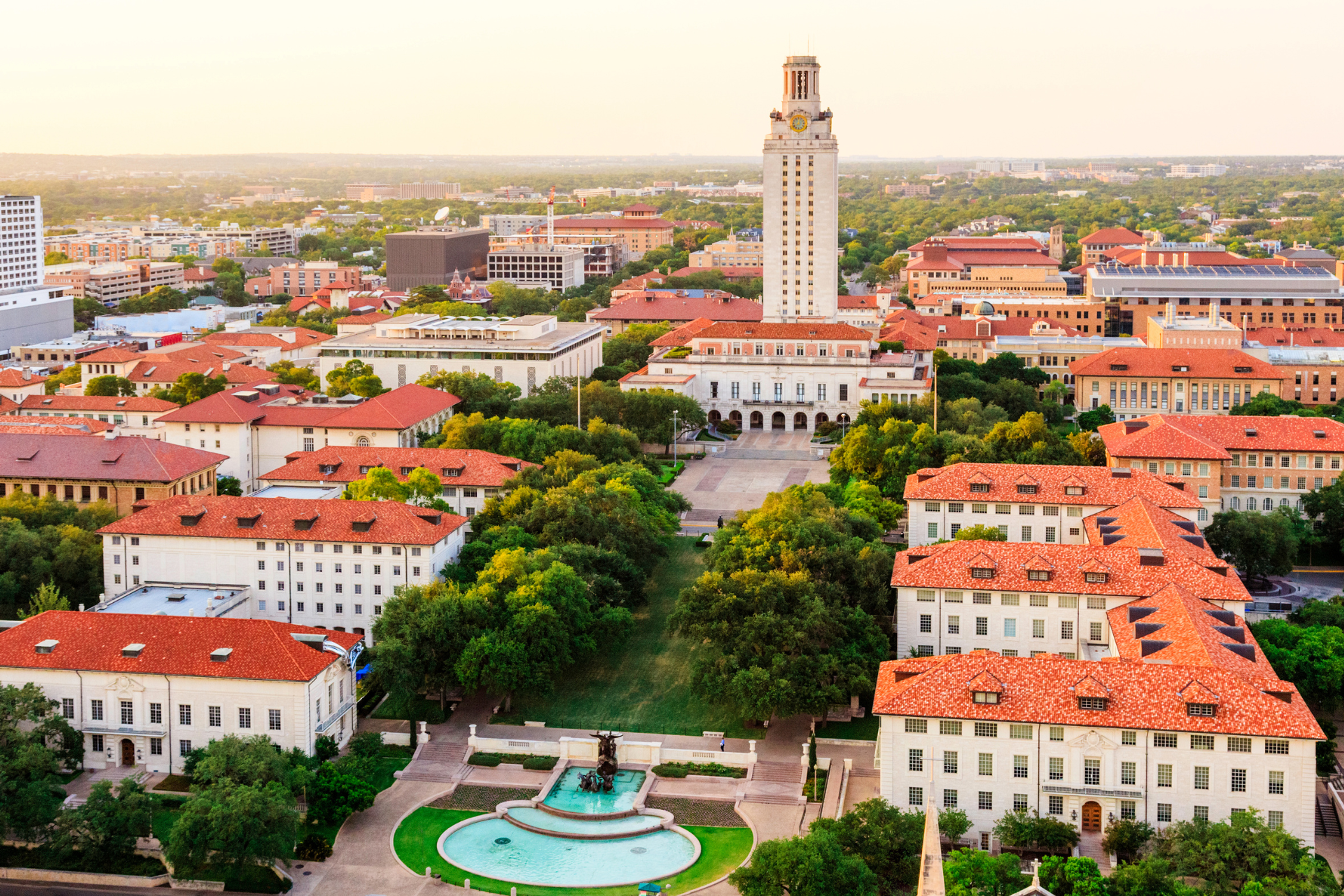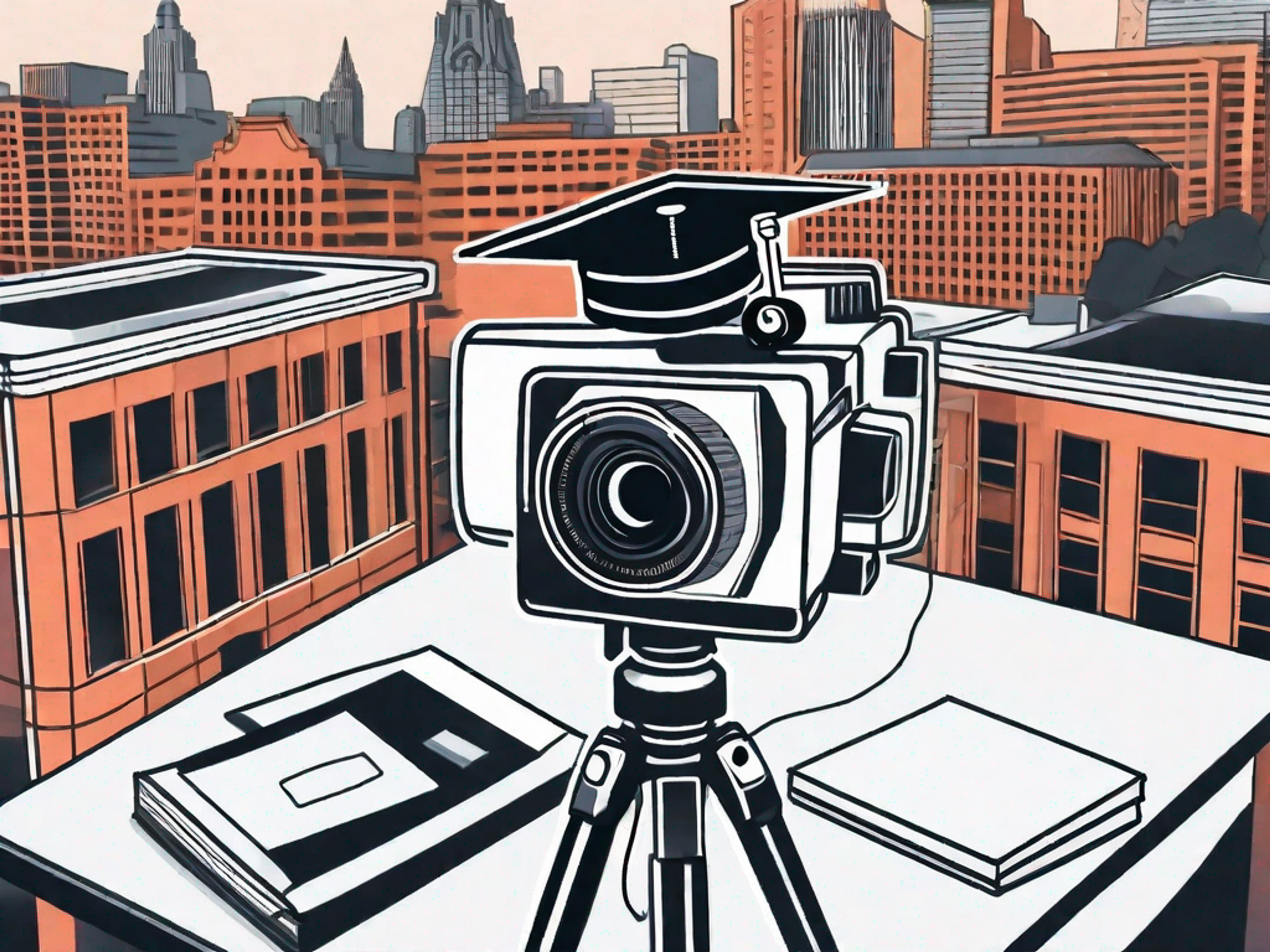Wharton MBA Essays: Prompts, Examples, and Expert Tips (2025)
Get expert tips, real examples, and a breakdown of the 2025 Wharton MBA essays in this guide to help you craft standout responses and impress the admissions committee.
By Timothy F.
Former Ad Comm | 150+ M7 Admits | Ranked top 4 firm on Poets & Quants 2025
Posted July 31, 2025

Table of Contents
Writing your Wharton MBA essays can feel overwhelming — not because you don’t have valuable experiences to share, but because you only have a few hundred words to explain them, along with your goals, your values, and why you belong at one of the most selective business schools in the world.
As one of the M7 business schools, Wharton and its admissions committee want to understand who you are, where you’re going, and how you’ll shape the Wharton community along the way. Your essays are your best opportunity to show them that.
In this guide, you’ll find everything you need to write essays that actually stand out — including a breakdown of the 2025 Wharton MBA essay prompts, strategic advice from former AdCom insiders, real examples, and the biggest mistakes to avoid.
Read: The Wharton School MBA: Acceptance Rate, Deadlines, Cost, Requirements, & Program Overview
What Are the Wharton MBA Essay Prompts (2025-26)?
The Wharton School requires two essays for the 2025-26 MBA application cycle:
Essay 1: Two short-form questions
"What is your immediate post-MBA professional goal? (50 words)"
"What are your career goals for the first three to five years after completing your MBA, and how will those build towards your long-term professional goals? (150 words)"
This replaces the previous 500‑word single‑essay format. The focus is now tightly on your career trajectory.
Essay 2: Long-form essay
"Taking into consideration your background – personal, professional, and/or academic – how do you plan to add meaningful value to the Wharton community? (350 words)"
This prompt has shifted slightly, from “make specific, meaningful contributions” to “add meaningful value,” and has been reduced from 400 to 350 words. Focus on impact, not just involvement.
Optional Essays
- Reapplicant Essay (250 words): Only required if reapplying—reflect on growth since your last Wharton application.
- Additional Information (500 words): For any background context, gaps, inconsistencies, or circumstances you wish to explain.
These prompts are designed to assess your clarity of purpose and your potential to contribute to the Wharton community.
Summary Table
| Essay | Word Limit | Notes |
|---|---|---|
| Goals (Part A) | 50 words | Post-MBA role |
| Goals (Part B) | 150 words | 3–5 year + long-term trajectory |
| Community Contribution | 350 words | Focus on adding value |
| Reapplicant (if applicable) | 250 words | Reflect & update |
| Additional Info | 500 words | Clarification or context |
What’s different this year?
- Goals prompt overhauled: shifted to concise short-form questions (50 + 150 words), replacing the previous 500-word essay.
- Community essay trimmed: from 400 to 350 words and reworded to emphasize value over activity.
- Reapplicant & Additional Information essays remain standard and unchanged.

MBA Essay Guide
Download our free MBA essay guide for school-specific deep-dives, examples, insider tips, and common mistakes
What Wharton Is Really Looking For in These Essays
Wharton’s essays are designed to reveal both your career clarity and your community mindset: two qualities the admissions team values deeply.
The first essay, now split into short-form responses, asks you to clearly articulate your career goals and how Wharton fits into that journey. It’s less about dreaming big and more about demonstrating thoughtful direction, ambition, and alignment with what Wharton offers.
The second essay shifts focus to how you’ll contribute to the Wharton community—not in vague terms, but through specific, meaningful value grounded in your personal, professional, or academic background.
Taken together, these prompts help the admissions team understand not just what you hope to gain but what you’re prepared to give, painting a holistic picture of your fit, impact, and readiness for the Wharton MBA experience.
Read: How to Write the Best MBA Essays – From an Admissions Consultant (With Examples)
Wharton MBA Essay Examples
Prompt 1: Career Goals (Post-MBA and Long-Term Vision)
What It’s Asking: Wharton wants to see that you have a clear direction and that their MBA program is the right next step to enable you to achieve your short- and long-term goals. They do not just seek to understand your ambition; they want to know why Wharton is the right place for you to grow, pivot, or accelerate.
How to Brainstorm:
- What are your short-term and long-term career goals? (Be specific, but flexible. You don’t have to have a dream job title, but you should have a clear industry/function focus and a few example paths. Think beyond prestige (e.g., "McKinsey") to purpose (e.g., "building strategic skills to scale healthtech access globally").)
- Expert Tip: Try to think about your career goals in terms of the impact you’d like to have over the course of your career. The ad comm will be interested in hearing why you want to pursue a particular path to help substantiate what you hope to do.
- What are the key skills, knowledge areas, or leadership traits you need to develop next? (The best Wharton essays are deeply self-aware. Identify the gaps or next steps you need in order to reach your goals: strategic thinking, financial modeling, global exposure, team leadership, entrepreneurial execution, etc.)
- Expert Tip: One way to help convince them that you know what you need is to share details about what you have already achieved (or will have achieved by matriculation). Your career narrative should include (1) where you need to go, (2) what you have so far, (3) what you lack, and (4) how Wharton is best positioned to help you get what you need / lack.
- Which specific Wharton resources, programs, classes, or experiences are a match for these needs? (Don’t just name-drop popular clubs or courses. Show that you understand how Wharton's unique offerings (e.g., the Mack Institute, Wharton Global Impact Consultants, Healthcare Management major, McNulty Leadership Program) directly align with your personal growth path.)
- Expert Tip: Tie each of the program offerings that you will pursue to you. For example, if you’re going to speak about the HCM major, you should implicitly be building a case that you are uniquely positioned to benefit from its offerings than the next healthcare applicant.
- Why Wharton specifically? (Match personal growth needs to Wharton’s resources—e.g., the Wharton Scale School, Lauder Institute, leadership ventures, specific courses or professors.)
- Expert Tip: Use the 150-word response to show progression: where you are now, what you want to do next, how it builds toward long-term impact, and why Wharton is uniquely positioned to help you get there.
Sample Excerpt: “After five years building pricing models at a Fortune 500 company, I want to pivot into strategy consulting focused on sustainable growth in emerging markets. The Wharton MBA will help me deepen my global business acumen through courses like Global Strategic Management and the Global Immersion Program. I plan to join the Africa Business Club and Consulting Club to sharpen my leadership skills and build practical experience through case competitions.”
Why It Works: It’s forward-looking, yet grounded in experience. It shows that the applicant has done their homework on Wharton’s offerings and connects the dots between past experience, career goals, and specific resources at Wharton.
Prompt 2: Contribution to the Wharton Community (350 words)
What It’s Asking: MBA programs have a unique problem: student culture is a significant driver of the program experience; however, 50% of the class turns over every year. Building the right community among students isn’t just important to Wharton, it’s absolutely paramount. This essay is asking, “If we admit you, how will you make Wharton a better place?” They want to know that you’ve thought about what you bring to an MBA class, and Wharton’s specifically, and how that ties into your background and goals. While the first essay focuses on your professional life aspirations, the second essay highlights how your unique background will enable you to make meaningful contributions to the Wharton community.
How to Brainstorm:
- What unique perspectives, skills, or experiences do you bring to the Wharton community? (Think both professional and personal – industries, leadership styles, cultural backgrounds, lived experiences, interests.)
- How have you contributed to communities, teams, or organizations in the past? (Identify concrete examples of leadership, mentorship, community-building, collaboration, innovation, etc.)
- What aspects of the Wharton community resonate most with you? (Consider clubs, conferences, centers, affinity groups, learning teams, leadership ventures, and culture.)
- Where do you see yourself actively engaging at Wharton – and how will you leave it stronger than you found it? (Be specific: Will you launch an initiative, lead a club, mentor peers, build bridges across communities?)
- What values or leadership traits do you hope to model and amplify at Wharton? (Think about not just what you’ll get from Wharton, but the cultural imprint you’ll leave behind.)
Expert Tip: The points you make in this essay need to be grounded in credible signals about your strengths and applied to specific aspects of the Wharton experience. You cannot simply state that you’re collaborative and then offer to be collaborative at Wharton. Rather, you need to show them how you have demonstrated differentiated collaboration in the past and then share how you will apply this collaboration at Wharton to enrich the experience of your peers.
Sample Excerpt: "Growing up in a multigenerational immigrant household taught me the value of education and resilience. At Wharton, I plan to contribute to the First Gen/Low-Income Club by organizing mentorship programs that help students from similar backgrounds thrive. I also want to contribute to the Wharton community by launching storytelling dinners, where fellow students share their journeys to foster deeper connection and inclusion."
Why It Works: It’s personal, specific, and focused on making Wharton stronger. It is rooted in the applicant’s lived experience and applied to specific aspects of the Wharton program. It shows both leadership potential and empathy, two key traits the Wharton admissions committee looks for.
Common Mistakes Applicants Make (and How to Avoid Them)
1. Stating generic or unclear goals.
Wharton doesn’t expect you to have every detail figured out, but they do expect real clarity. Applicants often submit vague goals like “I want to work in consulting” or “I want to lead in tech.” That’s simply not enough.
Instead, frame goals that are industry-specific, problem-driven, and purpose-oriented. Show the admissions committee that you’ve thought about where you’ll fit in the broader landscape and why your path matters.
2. Treating Wharton like every other M7.
Many applicants recycle essays from other schools, swapping in "Wharton" without demonstrating true knowledge of what makes Wharton distinctive and how they plan to take advantage of the unique Wharton offering.
Instead, show that you understand Wharton’s DNA: analytical rigor, global reach, cross-disciplinary flexibility, and a highly engaged, collaborative student culture. Tie your growth needs to specific Wharton resources that wouldn’t be available elsewhere.
3. Listing resources without connecting them.
It's common to see applicants name-drop a dozen courses, clubs, and centers, but without explaining how they’ll actually use them to close skill gaps or reach their goals. The ad comm is aware of the program’s offering, they don’t need you to summarize it for them.
Instead, select 2–3 resources and weave them into a story. For example, “To deepen my fintech expertise, I plan to pursue the Fintech Specialization, join Wharton Fintech, and work with the Stevens Center on an independent study focused on digital payments expansion.”
4. Focusing only on achievement, not growth.
Wharton highly values self-awareness and a developmental mindset. Essays that only celebrate accomplishments, without showing reflection, vulnerability, or ambition to stretch further, will fall flat.
Instead, frame past successes in terms of what you learned, how you grew, and what gaps you’re excited to tackle next. Show that you’re already impressive and coachable.
5. Misinterpreting Essay 2 as "fun facts."
The second essay (“Taking a risk, challenging a belief, or making a decision that changed your perspective”) is not an invitation for random trivia. Some candidates treat it like a quirky icebreaker and miss the opportunity to show depth.
Instead, pick a story that reveals something essential about how you think, how you lead, or how you view the world. Even if it’s personal, tie it back subtly to the leadership qualities Wharton looks for: adaptability, empathy, judgment, and courage.
6. Neglecting one of the core Essay 2 themes.
The ad comm is intentional in asking you what you bring to enrich the academic, professional, and personal communities at Wharton. Don’t pick favorites.
Instead, help them understand what you bring to enrich each of these program aspects and demonstrate that you have been thoughtful about how you will fully show up to reinforce the distinct Wharton community.
7. Playing it safe.
Especially in Essay 2, bland or overly safe answers can make an otherwise strong applicant fade into the background. Wharton rewards thoughtful risk-takers, not reckless ones, but people willing to step outside their comfort zones.
Instead, choose a moment where you faced ambiguity, tension, or self-doubt, and grew from it. Essays that show real intellectual and emotional stretch resonate far more than perfectly polished success stories.
My Expert Tips
Show you want to get into Wharton, not just business school.
Wharton isn’t looking for generic MBA applicants. They’re looking for people who will thrive in their ecosystem, a place where teamwork isn’t just a value, it’s how everything works. From your Learning Team in the first semester to the student-led conferences and investment funds, you’ll be expected to lead, collaborate, and challenge ideas. In your essays, don’t just name-drop clubs or classes. Make it clear that you understand the Wharton MBA experience and that you’re excited to be an active participant.
Connect your story to the structure of the program.
Wharton is proud of its rigor. This is a place where quantitative analysis meets real-world application, and they want applicants who can handle that and use it. If you’re talking about your future career goals, be specific about how courses like “Managing the Established Enterprise” or “Advanced Corporate Finance” will prepare you. Show how co-curriculars like the Wharton Venture Lab, Analytics at Wharton, or the Global Immersion Program align with the kind of hands-on growth you need. The best essays sound like you’ve already walked through Huntsman Hall and know how you’ll prioritize your time.
Contribution at Wharton isn’t optional; it’s cultural.
At Wharton, you’re expected to give back from day one. Whether it's leading a conference like the Wharton Africa Business Forum, mentoring others through the Peer Advising Fellowship, or shaping conversations through Wharton Women in Business, the AdCom wants to know: how will you make Wharton better? Think about the communities you’ve supported before, maybe you launched a DEI task force, taught financial literacy, or led initiatives in underrepresented spaces. Now, show how you’ll carry that energy into Wharton’s clubs, learning teams, and leadership programs.
Own your gaps because they respect honesty.
If your profile has a few rough edges, like a lower GPA, a career gap, or a previous application, don’t hide it. Wharton values self-awareness and accountability. Use the optional essay to explain what happened, what you’ve done to grow, and why you’re ready now. The key isn’t to be defensive; it’s to show maturity, resilience, and the ability to reflect. That kind of vulnerability often strengthens your MBA profile, not weakens it.
Let your global and personal perspective come through.
Wharton prides itself on being a global business school, both in its student body and in its worldview. If you’ve lived, worked, or led across cultures, let that shape your narrative. If you bring a perspective shaped by first-generation experiences, nontraditional industries, or mission-driven work, bring that forward. Wharton’s AdCom wants to build a class that challenges each other, learns from each other, and lifts each other up. Show them how your background, both personal and professional, will help you contribute to that kind of community.
How to Address Questionable Academic Performance or Extenuating Circumstances in Your MBA Application
If you’re applying to Wharton (or any top MBA program) and have questionable academic performance, unexplained gaps, or other extenuating circumstances, you can still be a strong candidate.
Most MBA admissions teams understand that life doesn’t always follow a clean narrative. That’s why Wharton includes an optional essay where you can proactively address circumstances like:
- Low undergraduate GPA or academic probation
- Unexplained gaps in your resume
- Periods of unemployment or underemployment
- Family obligations, health issues, or other extenuating circumstances that affected your performance
If this applies to you, here’s how to approach it:
How to Use the Optional Essay Strategically
When using the optional essay to address questionable academic performance or extenuating circumstances, keep your explanation clear, brief, and matter-of-fact. One paragraph is usually enough. Take ownership of what happened without making excuses—admissions committees respect maturity and self-awareness far more than defensiveness. End with evidence of upward momentum: whether it’s stronger grades later on, success in analytical roles, recent quantitative coursework, or a solid GMAT/GRE score, you want to leave no doubt that you’re prepared to succeed in a rigorous MBA program. Most importantly, tie your explanation back to your readiness and growth. The goal is to help the reader move past the issue and confidently think, “This challenge is behind them and they’re ready for Wharton.”
Example: “During my sophomore year, a family health crisis required me to take on caregiving responsibilities, which impacted my academic performance. While my GPA that semester was lower than usual, I maintained a strong upward trend afterward and graduated with distinction. This experience shaped my resilience, time management, and communication skills, which I’ve carried into my career and will continue to build at Wharton.”
Remember: the optional essay is not a weakness—it’s a strategic tool. If you don’t explain something that could raise extenuating circumstances (e.g., unexplained gaps or a 0/2–6 GPA trend), the admissions reader is left to assume the worst.
Work With Me to Strengthen Your Essays
I have helped many applicants successfully gain admission to top MBA programs in my role as an admissions fellow at Chicago Booth. Having reviewed hundreds of applications, I not only understand the importance of telling a powerful story as part of your application process, but I can also help you learn to tell yours. Book an intro call with me, and let’s get started.
Read these next:
- Wharton Team-Based Discussion (TBD) MBA Interview Guide
- Wharton Deferred MBA Program: Overview, Deadlines, & How to Get In
- Wharton MBA Application Deadlines
- The Wharton School – MBA Waitlist Strategy
- Wharton MBA Letters of Recommendation Guide - Questions, Tips, & Examples
FAQs About the Wharton MBA Essays
How does Wharton evaluate reapplicants, and what should I include in the reapplicant essay?
- Wharton welcomes reapplicants and looks for evidence of growth since your previous application. In the required reapplicant essay, you should highlight any significant developments such as promotions, new responsibilities, additional coursework, or enhanced leadership experiences. Demonstrating self-awareness and a clear understanding of how you've strengthened your candidacy is key.
Is it acceptable to discuss a career change in my essays, and how should I approach it?
- Absolutely. If you're planning a career pivot, clearly articulate your motivations for the change and how your past experiences have prepared you for this new path. Detail how Wharton's resources, such as specific courses, clubs, or programs, will support your transition and help you achieve your future professional goals.
Should I mention specific Wharton faculty or courses in my essays?
- Yes, referencing particular faculty members or courses can demonstrate your thorough research and genuine interest in Wharton's offerings. Ensure that these mentions are relevant to your career goals and explain how they will contribute to your development during the MBA program.
How important is it to align my essays with Wharton's values and culture?
- It's crucial. Wharton values a collaborative and diverse community. Your essays should reflect an understanding of these values by illustrating how you'll contribute to and benefit from the Wharton community, both academically and personally.
Can I use the same essays for multiple MBA programs, including Wharton?
- While some content may overlap, it's essential to tailor your essays to each program. Wharton's admissions committee looks for applicants who have a clear understanding of what makes their program unique and how it aligns with their goals. Generic essays can signal a lack of genuine interest.
Written by Timothy
5.0
(98)
I have helped many applicants successfully gain admission to top MBA programs both in the US and in Europe. I worked as an admissions fellow at Chicago Booth. In this role, I interviewed and reviewed the application details of almost 100 applicants across multiple quarters. I understand how to craft a dynamic story that will jump off the page for Ad Comms. Before pursuing an MBA, I started my career at Goldman Sachs, supporting prime brokerage clients with cash and security instruction and settlement. I am currently a project leader at Boston Consulting Group, advising clients mostly in the Gen AI, enterprise transformation, and org design practice areas. At BCG, I have supported clients with pricing strategy, org design, labor optimization, technology integration, and market analysis projects. I am a client service expert and can share valuable insight into how to successfully recruit and be successful at a top-tier investment bank or consulting firm. I earned a B.S. in Economics and in Finance from Utah State University and an MBA with high distinction from The University of Chicago Booth School of Business, where I graduated as an Amy and Richard F. Wallman Scholar.
Timothy has helped clients get into organizations like:
Chicago Booth
Kellogg School of Management (Northwestern)
Columbia Business School
The Wharton School (UPenn)
Yale School of Management












